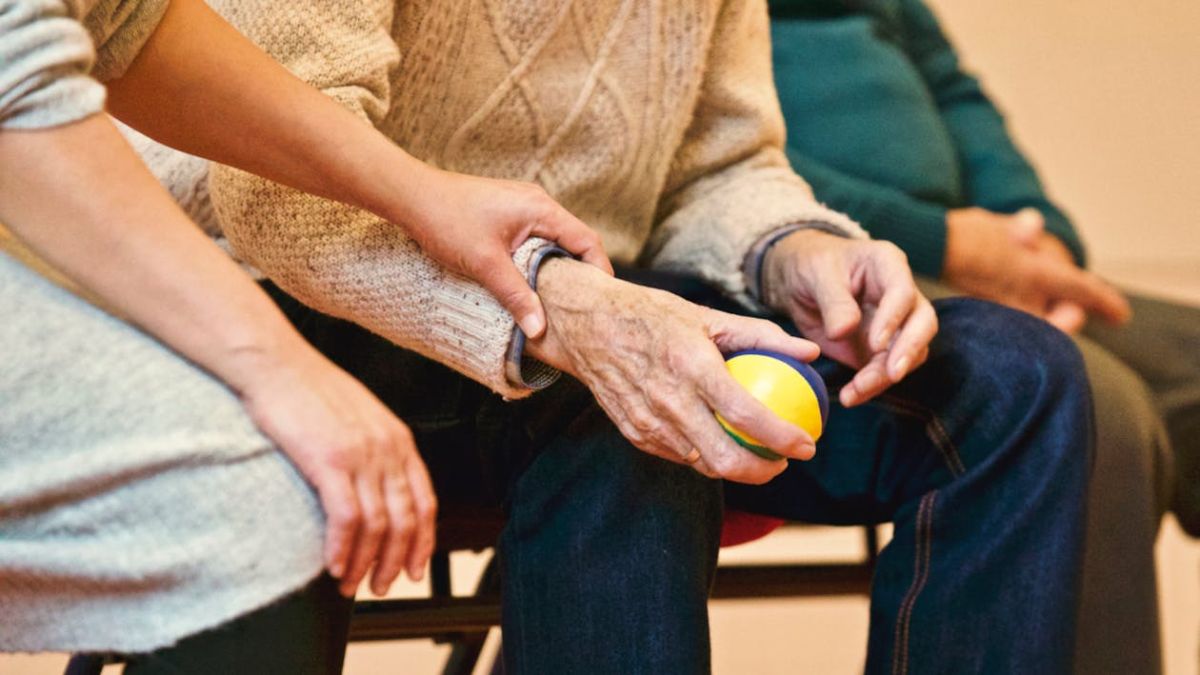There are many factors that can put us at risk of experiencing a trauma, many of which are often out of our control. The word “trauma” is used for many different types of experiences that are stressful. But not all stressful events are the type of trauma that can lead to Post Traumatic Stress Disorder (PTSD). To be at risk for PTSD, the trauma must be a shocking and dangerous event that someone sees or that happens to them. During this type of event, one may think that their or others’ lives are in danger. Many of us will experience at least one trauma in our lifetime that could lead to PTSD. According to the U.S. department of Veteran Affairs, about 6 out of every 100 people (or 6% of the U.S. population) will experience PTSD at some point in their lives.
Since June is PTSD Awareness Month, we at True Care would like to raise awareness about PTSD amongst Veterans. With Memorial Day taking place this past Monday, we believe it’s important to draw attention to this prevalent issue amongst America’s bravest citizens.
PTSD breakdown
Post-traumatic stress disorder (PTSD) is a diagnosed condition that can develop after a person is exposed to a traumatic event, series of events, or set of circumstances. A person with PTSD has difficulty recovering after experiencing or witnessing a terrifying event. Examples include natural disasters, serious accidents, terrorist acts, war/combat, rape/sexual assault, historical trauma, intimate partner violence and/or severe bullying. The condition may last months or years, with triggers that can bring back memories of the trauma accompanied by intense emotional and physical reactions. PTSD Symptoms include:
- disturbing thoughts, feelings, or dreams related to the events
- mental or physical distress
- difficulty sleeping
- changes in how a person thinks and feels
PTSD can have long-lasting and severe consequences. In fact, it can be permanently debilitating if it goes untreated. People with PTSD have intense, disturbing thoughts and feelings related to their experience that last long after the traumatic event has ended. They may relive the event through flashbacks or nightmares; they may feel sadness, fear or anger; and they may feel detached or estranged from other people. People with PTSD may avoid situations or people that remind them of the traumatic event, and they may have strong negative reactions to something as ordinary as a loud noise or an accidental touch.
A diagnosis of PTSD requires exposure to an upsetting traumatic event. Exposure includes directly experiencing an event, witnessing a traumatic event happening to others, or learning that a traumatic event happened to a close family member or friend. It can also occur as a result of repeated exposure to horrible details of trauma such as police officers exposed to details of child abuse cases.
PTSD in Veterans
PTSD has been known by many names in the past, such as “shell shock” during the years of World War I and “combat fatigue” after World War II. It is a very common condition for many Veterans after military service, in fact, combat exposure in the #1 cause leading to the development of PTSD.
Veterans are more likely to have PTSD than civilians, especially those deployed to a warzone. Traumatic deployment experiences, such as threat to life, the loss of others, and seeing the wounded and the dying, can leave lasting emotional scars on veterans. PTSD in war veterans is a common condition that can develop because of the unique traumatic experiences they endure. It can be useful to understand how veterans uniquely experience PTSD to aid in their care and welcoming them back home. PTSD symptoms in veterans often present as:
- Avoidance: Veterans will often avoid situations that remind them of the event. For example, some veterans avoid crowded places or loud, overstimulating situations. Some veterans will even avoid talking about the incident that affects them.
- Persistent negative emotions: Veterans who experience PTSD can be overwhelmed by negative feelings. A veteran may also feel difficulty establishing trust, experience feelings of guilt, shame, remorse, disinterest in previously enjoyable activities, or genuinely find it hard to feel happy.
- Hypervigilance or hyperarousal: Veterans experiencing hyperarousal will feel constantly on alert and often uneasy in unfamiliar situations. For instance, they may prefer to find a seat facing the door in a restaurant, watch for dangerous people or objects in normal everyday situations, or feel the need to be near a point of egress. This can be distracting and make it difficult to focus or enjoy simple experiences, like dinner with family. Veterans with signs of PTSD may also find it difficult to sleep or relax, be prone to anger or irritability, startle easily, act recklessly or abuse drugs or alcohol as a coping mechanism.
- Reliving the event: Awake or asleep, a trigger such as sound or random touch can cause painful memories to surface and make veterans feel as though they are experiencing the event all over again.
Post-traumatic stress disorder (PTSD) impacts 11-20% of Iraq and Afghanistan War Veterans, approximately 12% of Gulf War Veterans, and 15% of Vietnam Veterans. In addition to the combat-related PTSD, roughly 1 in 4 women and 1 in 100 men utilizing the VA report instances of sexual harassment or assault, which can also result in prolonged traumatic stress.
Treatment and care for PTSD
It is important to note that not everyone who experiences trauma develops PTSD, and not everyone who develops PTSD requires psychiatric treatment. For some people, symptoms of PTSD subside or disappear over time. Others get better with the help of their support system (family, friends, or clergy). However, many people with PTSD do need professional treatment to recover from psychological distress that can be intense and disabling. It is important to remember that trauma may lead to severe distress. That distress is not the individual’s fault, and PTSD is treatable. The earlier a person gets treatment, the better chance of recovery.
Treatment often includes different types of trauma-focused psychotherapy as well as medications to manage symptoms. The main psychotherapy being cognitive behavior therapy (CBT). CBT is a type of psychotherapy that has consistently been found to be the most effective treatment of PTSD both in the short term and the long term. CBT for PTSD is trauma-focused, meaning the trauma event(s) are the center of the treatment. The combination of therapy and medication helps improve symptoms by teaching the patient to address their symptoms, rather than avoid and conceal them.
Sometimes correcting emotional or chemical imbalances in the brain requires the help of professionals. For anyone showing signs of PTSD, there is no shame in asking for help. Remember— it’s not a sign of weakness to ask for help, it’s a sign of strength. The Department of Veterans Affairs Vet Centers offers combat veterans across the country a broad range of counseling, outreach, and referral services for post-traumatic stress and complex PTSD. Additionally, seeking assistance from a local DAV benefits expert can be a first step toward learning about earned benefits or finding the counseling or mental health services needed to diagnose and treat PTSD.
Summing it up:
Although commonly associated with military veterans or active-duty service members, PTSD is a disorder that affects a wide range of people and can be triggered by a variety of traumatic events. PTSD can occur in all people, of any ethnicity, nationality or culture, and at any age. If you are concerned that you or someone you care about has PTSD, there is help. The first step is to speak up. Talk to friends and family. You may find someone you know also has PTSD and can help refer you to the resources they used.
You should also speak with your family doctor, who may make a referral to a therapist or group. If you don’t have a family doctor or you feel you aren’t getting the help you need, there are other options. True Care is happy to help point you in the right direction to help manage your care. Don’t give up. PTSD is manageable.





